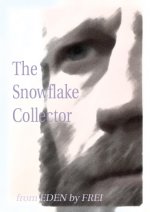The Snowflake Collector – 2: His Task Would Be Immense

By FREI
- 1192 reads
At first he didn’t know how to collect snowflakes; he did not even know whether it was possible to do so at all. All he knew was that if he were able to preserve and collect snowflakes then he would have something meaningful to do for the rest of his days, because there would never come a day when he would chance upon a snowflake that would be identical to any he already had in his collection and so his collection would never be complete.
This, he also already knew, would be both infuriating and soothing. There would be times when he would feel like throwing out all the carefully crafted wooden cases, into which would slide all the cautiously cut plates of glass, upon which would rest – for the relative eternity of any civilisation existing to be appreciative, even just conscious of them – the snowflakes in their time-frozen state, and burning the lot in a bonfire. But he would not do so, he was certain, for deep down he knew how precious his collection would become, and how singular, how unique.
The wood for the carefully crafted cases would come from the firs on his land by the stream. Since he heated his hut in the cold months with wood from his land by the stream, he planted two young firs to replace each mature one he cut down, and this way, he thought, the balance in the valley (and therefore in the universe) would stay intact, even tilt a little in favour of trees, with his presence.
He knew well how to craft wooden cases, even intricate ones as these would undoubtedly have to be, because they would need to have slits in them at regular gaps that were just so spaced and so fashioned that a small plate of glass, in size about one inch by three, would slide easily in and out of the case, but stay firmly in place once stowed. The cases would have to be sturdy and each have a handle so they in turn could slide effortlessly – apart from their weight, which would be considerable – in and out of a larger box, and this larger box would need to be stackable, because he knew that over time he would collect snowflakes enough to fill many of them. He would have to, he realised, build a shed. And he would build that shed from the same fir trees that stood on his land by the stream.
It was clear to him now that his task would be immense. Because not only would he have to carefully craft wooden cases and for these wooden cases strong wooden boxes, and for these boxes a formidable shed, he would have to cut glass into regular plates, one inch by three, on which he would capture the snowflakes. And he would have to catalogue them. He felt unsure about how to catalogue snowflakes, since he had no experience or expertise in this, but as with most things that he had ever attempted in his life, he also thought that he would find a way. What didn’t appeal to him was the thought of giving his snowflakes numbers. Numbers, he felt, when they are not being used for elegant thinking, are not poetic, certainly not poetic enough to record snowflakes. No, he was sure, from the first moment, even before he had gone out to collect his first snowflake, that he would have to name them. And since each snowflake would – as he knew and as everyone knows – be different, he would just have to find a specific name for each one.
As he sat down, that evening, outside his hut, having so made his decision to collect the snowflakes – not all of them, obviously, only some – and contemplated the great task ahead of him and the tremendous delight in not knowing which snowflakes he would catch and collect and which snowflakes would elude him, and therefore what names he would have to find for the snowflakes that he would keep, he felt a deep glow of happiness fill his heart; this is who I shall become, he thought to himself: The Snowflake Collector.
- Log in to post comments
Comments
There is somethingoddly
There is somethingoddly intriguing in this narrative. There is a saying "good creative writing causes the reader to ask questions. Bad creative writing gives the readers answers" on that premise alone this is good creative writing. You need to tighten up the prose. Investigate the craft of writing in order to improve the prose. You could do a lot worse than read Tim Clare's blog especially the sectio Death of a Thousand Cuts. Here's a link to take you to one of hundreds that he's written:
Death Of 1000 Cuts
Sorry this link hasn't loaded but if you type "Tim Clare" into your browser you'll easilly find what I'm recommending.
- Log in to post comments


